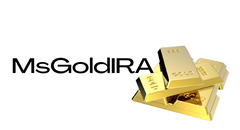
Introduction
The Bank of England and HM Treasury have responded to the public's interest in the digital pound, assuring the public of stringent legislative measures for privacy and control, while maintaining the availability of traditional cash.
Public Consultation and Interest
Following engagement from the public and industry experts, the Bank of England and HM Treasury have unveiled their response to the public consultation on the potential introduction of a digital pound. The overwhelming response of over 50,000 submissions indicates the strong interest of the public in the future of digital currency in the United Kingdom.
Addressing Concerns
Key concerns raised by the respondents revolved around privacy, control of funds, and the continued use of traditional cash. The authorities have reassured the public that robust legislative measures will be put in place to protect user privacy and control before the digital pound is rolled out. Primary legislation will be enacted to ensure that neither the Bank of England nor the government will have access to users' personal data.
Supplement, not Replacement
The digital pound is envisioned as a supplement to existing forms of money, rather than a replacement. Economic Secretary to the Treasury, Bim Afolami, emphasized that privacy will always be a priority in the design of the digital pound, and its introduction would be alongside traditional cash, not instead of it.
Building Trust
Sarah Breeden, Deputy Governor for Financial Stability, highlighted the importance of trust in all forms of money. She emphasized that building trust and gaining the support of the public and businesses who would use the digital pound, if introduced, is essential.
Feasibility and Design Choices
No final decision has been made to pursue the digital pound, also known as a central bank digital currency (CBDC). The ongoing work involves exploring the feasibility and potential design choices of a digital pound in the UK economy. The focus is on how the digital currency can offer greater choice, convenience, and innovation for everyday payments.
Coexistence with Cash
The digital pound aims to coexist with cash in the digital era, providing an alternative for everyday transactions. It will be issued by the Bank of England and designed to be convenient, widely available, and easily exchangeable with other forms of money. The digital currency will be accessible through digital wallets and primarily intended for transactions rather than savings, without paying interest. Initial holding limits for individuals and businesses are also part of the plan.
Legislative Processes and Public Consultations
Before the launch of the digital pound, detailed legislative processes and further public consultations will take place. The proposed design of the digital pound has received positive feedback, but concerns about access to cash and control over personal data have led to the commitment to introduce primary legislation for user protection. The future legislation will also prevent the government from controlling the digital pound.
Next Steps
The Bank of England currently proposes a holding limit of £10,000-£20,000 for the digital pound, subject to future reviews. The digital pound is expected to be accessible in several countries, excluding those under sanctions. Experiments and further public consultations will be conducted to test the digital pound in real-world scenarios.
Share your thoughts and opinions about the potential use of the digital pound in the comments section below.
Frequently Asked Questions
Are precious metal IRAs a wise investment?
How much risk you are willing to take for an IRA account's value loss will determine the answer. They make sense if you have $10,000 in cash as long as you don't expect them to grow very quickly. These might not be the best options if you're looking to invest in assets that have the potential to rise in value (gold) and plan to save for retirement for many decades. These investments can also be subject to fees that could reduce any gains.
Are gold and silver IRAs a good idea?
This could be a great opportunity for those who want to easily invest in both gold or silver simultaneously. There are also many other options. We are happy to answer any questions you may have about these types of investments. We're always glad to help!
Should You Open a Precious Metal IRA?
This depends on what your investment goal is and how risk-tolerant you are.
Register now if you want to save money for retirement.
Because precious metals are highly likely to appreciate over time, They also offer diversification benefits.
In addition, gold and silver prices tend to move together. They are therefore a better option for investing in both assets.
You should not invest in precious-metal IRAs if it is not your intention to use your money for retirement, or if you are unwilling to take any risks.
Does a gold IRA earn interest?
It all depends upon how much money you invest. If you have $100,000 to spare, then yes. You will not be able to answer if your income is less than $100,000
How much money you place in an IRA will determine how it earns interest.
If you have more than $100,000 in retirement savings each year, you might consider opening a regular brokerage accounts.
There you will earn more interest, but also be exposed to higher risk investments. It's not a good idea to lose all of the money you have invested in the stock exchange.
An IRA might be more advantageous if you are able to contribute only $100,000 per year. At least until the market starts growing again.
What precious metals will be allowed in an IRA account?
Gold is the most widely used precious metal for IRA account accounts. Gold bullion coins and bars are also available as investments.
Precious and precious metals are considered safe investments, as they don’t lose their value over the course of time. Precious metals are also great for diversifying an investment portfolio.
Precious metals include silver, platinum, and palladium. These three metals all have similar properties. Each metal has its own unique uses.
For example, platinum is used in making jewelry. For the creation of catalysts, palladium can be used. The production of coins is done with silver.
You should consider the amount you will spend on your gold before you decide which precious metal. A lower-cost ounce of gold might be a better option.
You should also think about whether you want to keep your investment private. Palladium is the best option if you want to keep your investment private.
Palladium has a higher value than gold. It's also more rare than gold. So you'll likely have to pay more for it.
When choosing between gold or silver, another important aspect is the storage fees. Gold is stored by weight. So you'll pay a higher fee for storing larger amounts of gold.
Silver can be stored by volume. Therefore, smaller amounts of silver will cost less.
If you decide to store your precious metals in an IRA, follow all IRS rules regarding gold and silver. This includes keeping track of transactions and reporting them to the IRS.
Which type of IRA is the best?
When selecting an IRA for yourself, the most important thing is to find one that meets your lifestyle and goals. You must consider whether you want to maximize tax-deferred growth on your contributions, minimize taxes now and pay penalties later, or just avoid taxes altogether.
The Roth option may make sense if you are saving for retirement but don't have much other money invested. It also makes sense if you continue working after age 59 1/2 and expect to pay income taxes on any accounts withdrawals.
Traditional IRAs are more suitable if you intend to retire young. However, you will most likely owe taxes on any earnings from those funds. But if you're going to work well past age 65, the Roth IRA might make more sense since it allows you to withdraw some or all of your earnings without paying taxes.
Can I have physical possession of gold within my IRA?
Many ask themselves whether they can physically possess gold in an IRA account. This is a fair question because there isn't any legal way to do it.
But when you look closely at the law, nothing stops you from owning gold in an IRA.
Most people don't realize the cost savings they could make by putting their gold into an IRA rather than keeping it in their homes.
It's very easy to dispose of gold coins, but much harder to make an IRA. If you decide that you want to keep your gold at home, you'll be responsible for two tax payments. You will pay taxes twice: once to the IRS and one for the state in which you live.
There are two ways to lose your gold: pay taxes twice and keep it in your house. So why would anyone want to keep their gold in their home?
You might argue that it is important to know that your gold remains safe in your house. To protect yourself from theft, store your gold somewhere that is more secure.
If you intend to visit often, don't leave your gold unattended in your home. Theft can easily take your gold when you're not home.
It is better to keep your gold in an insured vault. This will ensure that your gold is protected against fire, flood, earthquake and robbery.
A vault can also be beneficial because you don't need to pay property tax. Instead, income tax will be charged on any gains made from the sale of your precious metal.
If you'd rather avoid paying taxes on your gold, you may want to consider putting it in an IRA. With an IRA, you won't have to pay income tax even though you earn interest on your gold.
Since you aren't required to pay capital gains tax on your gold, you'll have access to the full value of your investment whenever you want to cash it out.
And because IRAs fall under federal regulation, you won’t have any problems getting your gold transferred to another institution if you move.
The bottom line? You can own your gold in an IRA. The only thing holding you back is your fear of having it stolen.
Statistics
- You can only purchase gold bars of at least 99.5% purity. (forbes.com)
- Same tax rules as traditional IRA SEP IRA contributions in 2022 are limited to 25% of compensation or $66,000, whichever is less Before setting up a Silver IRA, understand the fees and IRS restrictions. (sltrib.com)
- If you accidentally make an improper transaction, the IRS will disallow it and count it as a withdrawal so that you would owe income tax on the item's value and, if you are younger than 59 ½, an additional 10% early withdrawal penalty. (forbes.com)
- Silver must be 99.9% pure • (forbes.com)
External Links
forbes.com
- Gold IRA, Add Some Sparkle to Your Retirement Nest egg
- Understanding China's Evergrande Crisis – Forbes Advisor
takemetothesite.com
investopedia.com
regalassets.com
How To
How to Determine if a Gold IRA is Right for You
The most popular type of retirement account is the Individual Retirement Account (IRA). IRAs can also be purchased through banks, mutual funds, financial planners, and other institutions. The IRS allows individuals up to $5,000 in annual contributions without tax consequences. This amount can be contributed to any IRA, regardless of your age. You can only put a certain amount into an IRA, but there are restrictions. For example, you cannot contribute to a Roth IRA unless you're at least 59 1/2 years old. You must wait until your age 70 1/2 to make contributions if you are under 50. In addition, some people who work for their employer may be eligible for matching contributions from their employer.
There are two types: Roth and Traditional IRAs. Traditional IRAs allow you to invest in stocks, bonds and other investments. A Roth IRA allows you to only invest in after-tax dollars. Contributions to a Roth IRA aren't taxed when they come out, but withdrawals taken from a Roth IRA are taxed once again. Some people choose to use a combination of these two accounts. Each type has its advantages and disadvantages. How do you choose the best type of IRA for you? Below are three important things to keep your mind on:
Traditional IRA Pros
- Companies have different options when it comes to contribution options
- Employer match possible
- It is possible to save more than $5.000 per person
- Tax-deferred growth until withdrawal
- There may be restrictions based upon income level
- Maximum contribution limit: $5,500 per annum (or $6,500 for married filing jointly).
- The minimum investment is $1,000
- After the age of 70 1/2, mandatory distributions must be taken.
- Must be at least five years old to open an IRA
- Transfer assets between IRAs is not possible
Roth IRA Pros:
- No taxes owed when contributing
- Earnings grow tax-free
- Minimum distribution not required
- There are only a few investment options available: stocks, bonds and mutual funds.
- There is no maximum allowed contribution
- No limitations on transferring assets between IRAs
- Open an IRA if you are 55 years or older
Considering opening a new IRA, it's essential to know that not all companies offer the same IRAs. For example, you might be able to choose between a Roth IRA (or a traditional one) from some companies. Others will give you the option to combine them. It is also important to note that different types IRAs will have different requirements. A Roth IRA does not have a minimum investment requirement. Traditional IRAs require a minimum of $1,000.
The Bottom Line
It is important to decide whether you want taxes now or later when you choose an IRA. If you're planning to retire in the next ten-years, a traditional IRA may be the best option. Otherwise, a Roth IRA could be a better fit for you. However, it's always a good idea for you to talk with a professional regarding your retirement plans. Someone who understands the market will be able to recommend the best options.
—————————————————————————————————————————————————————————————-
By: David Sencil
Title: The Bank of England and HM Treasury Address Key Concerns Regarding the Digital Pound
Sourced From: news.bitcoin.com/bank-of-england-hm-treasury-respond-to-digital-pound-consultation-amid-strong-public-interest/
Published Date: Sat, 27 Jan 2024 05:00:40 +0000












